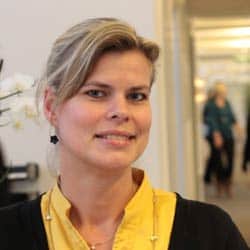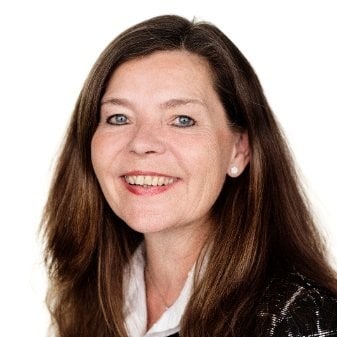Articles of Association
These Articles of Association were adopted at the founding general meeting on 19 March 2002, and amended at the following general meetings: 27.03.03 – 01.04.04 – 26.04.06 – 28.04.08 – 22.04.10. – 11.04.13 – 26.04.2017
§ 1. Name and place of operation
The association is an independent non-profit association called NOCA (Network of Corporate Academies). The association has its registered office in Copenhagen Municipality
§ 2. The purpose of the association
The association will contribute to bridge building between HR research and practice. The association must be a forum for knowledge gathering and dissemination and exchange of experience on topics, methods and organisation of education, organisational, personnel and leadership development that are of strategic importance to member companies.
The association’s purpose is promoted, for example. by:
- Collection and dissemination of knowledge about HR development
- Establishment and development of contact with researchers and teachers and educational institutions
- Events of meetings, courses, conferences and study trips
- Organisation of experience exchange and project groups
- Co-ordination of consortium programs
- Support for members in the development and implementation of enterprise-oriented development programs
§ 3. Membership
Any private and/or public company / organisation with an interest in the association’s goals and who actively work toward the association’s purpose on a daily basis can be admitted as members.
Membership must be approved by the Board.
Following the recommendation of one or more members, the Board may award an honorary membership to the association to individuals or organisations that have had a decisive and positive impact on NOCA’s activities.
Such membership entitles participation in NOCA’s various activities on an equal footing with the members of the association. However, the honorary member does not have the right to vote at General Meetings etc.
Termination of membership must be made in writing to the association’s secretariat and with at least 6 months notice until the end of a calendar year.
§ 4. Registration fee and membership fees
The association’s registration fee and membership fees are fixed for one year at the annual general meeting. At the association’s establishment, the registration fee is set at DKK 25,000.
The annual fee also covers membership of the DSEB (former FUHU).
§ 5. The Annual General Meeting
The Annual General Meeting has the highest authority in all affairs of the association as described by these Articles of Association.
The Annual General Meeting is held once a year in April. The general meeting must have at least the following agenda:
- Election of the meetings chairman.
- Report from the board members.
- Presentation of the association’s accounts.
- Presentation of the association’s budget, for the information of members.
- Submission of proposals.
- Determination of registration fee and membership fee.
- Election of board members and alternate members of the association’s board of directors
- Election of auditor
- Optional agenda points
The Annual General Meeting is chaired by a chairman elected by the assembly. This may not be a member of the board.
Access to the general meeting is only available to the associations members, elected pursuant to section 3, and those whom the Board may have invited.
Voting at the Annual General Meeting is only open to members (as per section 3 and pursuant to section 3) who were members on January 1st in the year of the Annual General Meeting. Each member has one vote. TheAnnual General Meeting makes decisions by a simple majority, unless otherwise stipulated in the Articles of Association. Voting by proxy is prohibited.
The auditor is elected for a year at a time.
The Annual General Meeting is convened by written notice to the members with at least 4 weeks notice. The notice indicates that submission of proposals may take place until 2 weeks before the general meeting. No later than 1 week before the general meeting, submitted proposals must be sent to the members.
The association’s accounts must be enclosed with the notice of the Annual General Meeting.
Candidates for vacant board seats are put forward at the Annual General Meeting and are chosen by highest votes. By vote, re-election is made.
Extraordinary general meetings shall be held if the board decides, or at least one third of the members request it in writing, specifying the items that are dealt with. An invitation shall be sent in writing with at least 14 days notice. The proposed agenda must be attached.
§ 6. Composition and election of the Board
The Board consists of 8 persons.
The individual Board members and 2 to 4 deputies are elected by the general meeting for 2 years at a time. Re-election is permitted. A Board member may sit on the Board for up to 3 election periods.
The Board constitutes a chairman and vice-chairman. If a member of the Board resigns within a term of office, the Board is supplemented by the elected deputy members.
If a member of the Board resigns their position with their member organisation (their employer), they also resign as a member of the board.
Every year, half of the seats on the Board are up for election.
If a Board member is expected to be prevented from participating in board meetings and other board work, for work or personal reasons, for a period of up to one year, the Board may grant such leave during such period. The normal rules for electoral term, re-election and eligibility will remain valid for the member in question. During that board members term of leave, the Board will be supplemented with the first deputy elected by the Annual General Meeting.
If a board member resigns from their member organisation (employer) and takes up employment in another member organisation, the member in question may continue to work on the Board until the end of the term of office.
If a board member resigns from its member organisation (employer) and takes up employment in an organisation that is not a member of NOCA, the board member may remain on the board if the board member’s new work organisation within three months is admitted as a member of NOCA. If this is not the case, the Board member resigns from the Board and NOCA at the next Annual General Meeting.
The normal rules for electoral term, re-election and eligibility will remain valid for the member in question.
§ 7. Tasks and duties of the Board
The association’s management is carried out by the board, representing the association in all circumstances. In support of the work of the Board, the administration team carries out the daily work of the association.
The Board annually prepares a report for presentation at the Annual General Meeting. The Board convenes a general meeting at least once a year.
The Board shall adopt its own rules of procedure. Board meetings are held at least four times a year, and when the chairman finds it necessary or at least 3 board members require it.
Notice of board meetings must given in writing with 14 days notice and with the proposed agenda attached.
A decision is made after each board meeting, which is underscored by the chairman, vice-chairman and the referent.
The Board makes its decisions by simple majority of votes. In the case of a tie, the chairman or the acting chairman’s vote is decisive.
Voting by proxy is prohibited.
The Board is only able to make binding decisions when more than half of the Board members are present.
§ 8. Budget, accounts and assets
The Board prepares a budget each year for the information of memebrs and presented at the Annual General Meeting. The financial year for the association follows the calendar year.
The accounts must be signed by all members of the board and by the management of the NOCA administration.
The annual accounts must be prepared in accordance with generally accepted accounting principles and in accordance with the applicable legal requirements in force at the time.
The assets of the association must be invested in a recognised bank, with the exception of the required cash. The associations assets may, in consultation with the association’s auditor, be invested in investments with a low risk profile.
The association is only liable for the obligations which the Board has legally imposed on the association.
§ 9. Accounting
The association’s accounts are audited annually by the selected audit company.
The auditors must review the total accounts every year in February and ensure that the holdings are present and that the bookkeeping is properly carried out. The accounts are endorsed.
The auditors have at all times access to the accounts and holdings.
§ 10. Drawing
The association is drawn up by two of the following:
- The adminitrative chairman
- The chairman
- The vice-chairman.
If that is not possible then it may be with one of the above 3 and 2 board members.
The Board may grant powers of procuration.
§ 11. Amendments to the Articles of Association
Amendments to the Articles of Association shall be approved at the Annual General Meeting by 2/3 of the votes cast.
§ 12. Termination
Resolution on the termination of the association can only be taken at a specially convened extraordinary General Meeting.
In order to be able to vote, at least half of the voting members of the association must be present, and at least two thirds of them must vote for the proposal before the association can be dissolved.
If this general meeting is not resolved, a call for a new general meeting, where the majority of votes decide whether the association is to be dissolved.
Upon termination, Profits and assets are used for non-profit purposes in accordance with the resolution of the Annual General Meeting.


